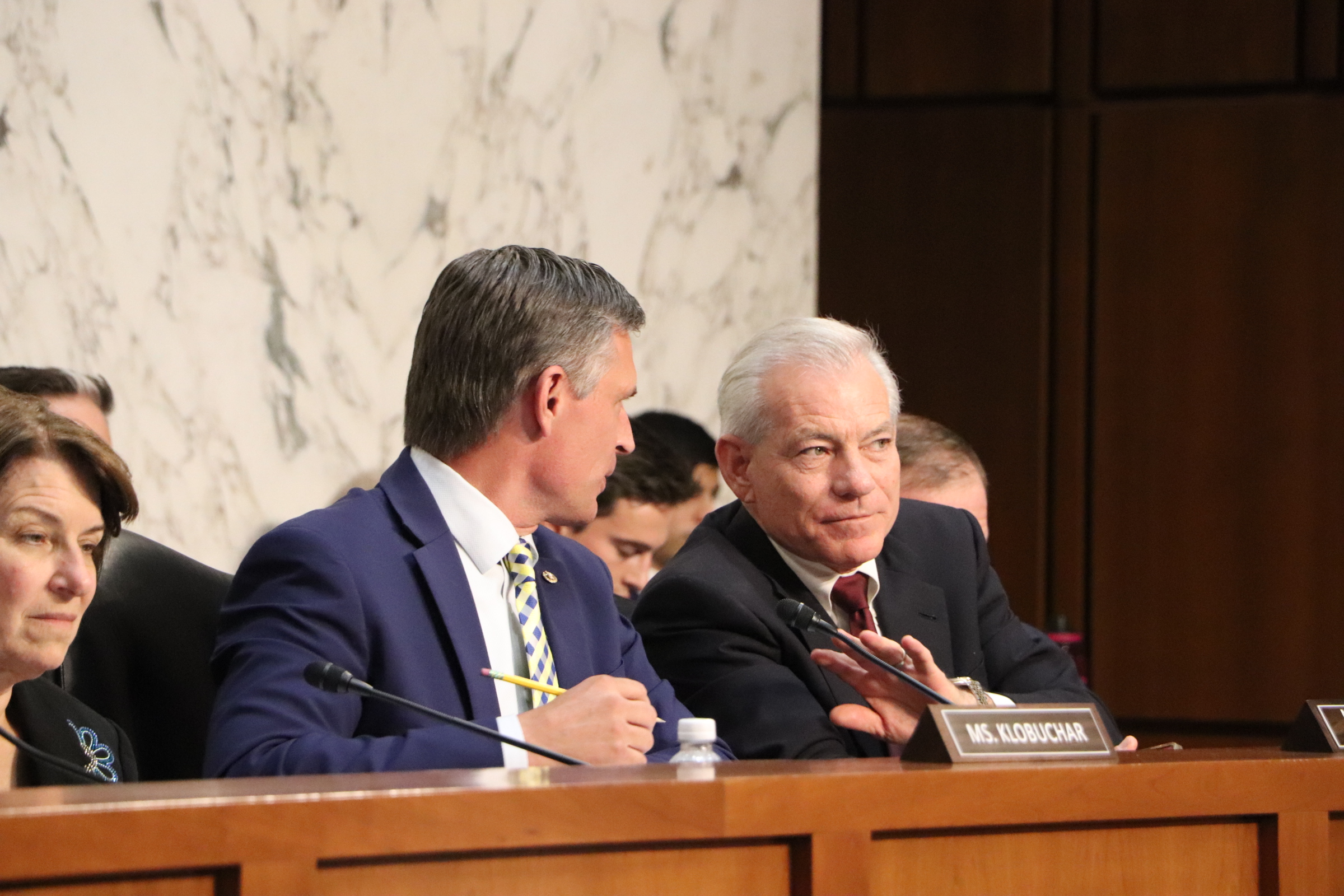Artificial intelligence (AI) is one of the most important current drivers of the economy. The Joint Economic Committee (JEC), which was created by Congress to study economic policy, recently held a hearing entitled “Artificial Intelligence and Its Potential to Fuel Economic Growth and Improve Governance.” The JEC is bicameral. Committee leadership switches between each chamber every Congress. The current Chair is Senator Martin Heinrich (D-NM) and the Vice Chair is Representative David Schweikert (R-AZ).
In his prepared opening statement for the hearing, Chairman Heinrich stressed the importance of carefully reviewing the risks and rewards of AI. He noted that Congress’s role should focus on passing legislation to mitigate the risks of AI and funding research initiatives. He used his own legislation as an example, stating, “Thanks to my bill, the National AI Initiative Act, the National Science Foundation recently announced $140 million in funding for seven new National Artificial Intelligence Research Institutes as a part of a cohesive, cross-governmental approach to address AI-related opportunities and risks. These new institutes will advance research on ethical and trustworthy technologies in cybersecurity, climate change, understanding the human brain, and enhancing education and public health—all while supporting the development of a diverse AI workforce.” Chairman Heinrich also stated at the hearing that there is bipartisan interest in exploring the benefits and risks of AI.
Vice Chair Schweikert has previously made statements about using AI to shrink government. The day before this hearing, he spoke on the House floor about cost savings from implementing AI in government, particularly as it relates to improved automation. In one portion of his speech, he said, “Imagine if you called the IRS and it stays on the phone with you, because it picked up the phone, because it has ultimate capacity, because it sounds every bit like a person, but stays on the phone with you, listens to you, and walks you through on how to fill out your form. If you need the form, it can email it to you or text it to you. It could even walk you through other forms you might need because of what you’re doing.” He added, “One of the ways, if you’re going to start cutting budgets, but yet still want the efficiency and the morality of accessibility for the public, start thinking about how many government agencies—because they’re always marching in here complaining they can’t hire anyone anyway. Well, let’s replace those slots with technology that will actually give you the answers you’re looking for because it has the full information set in front of it. This is the moral way to do it.”
At the hearing, Senator Eric Schmitt (R-MO) asked about the possibility of stifling innovation through overregulation of AI, citing the European Union’s regulatory regime as an example. One of the witnesses, Adam Thierer, Resident Senior Fellow in Technology and Innovation at the R Street Institute, responded that there are 754 AI bills in development across federal and state governments in the U.S. He noted that this volume of legislation will create a complex web of regulatory schemes that could deter AI innovation. It could also deter the growth of smaller AI firms that are unable to meet the requirements of overly burdensome regulations, he argued.
Note from the Editor: The Federalist Society takes no positions on particular legal and public policy matters. Any expressions of opinion are those of the author. We welcome responses to the views presented here. To join the debate, please email us at info@fedsoc.org.
Back to News

